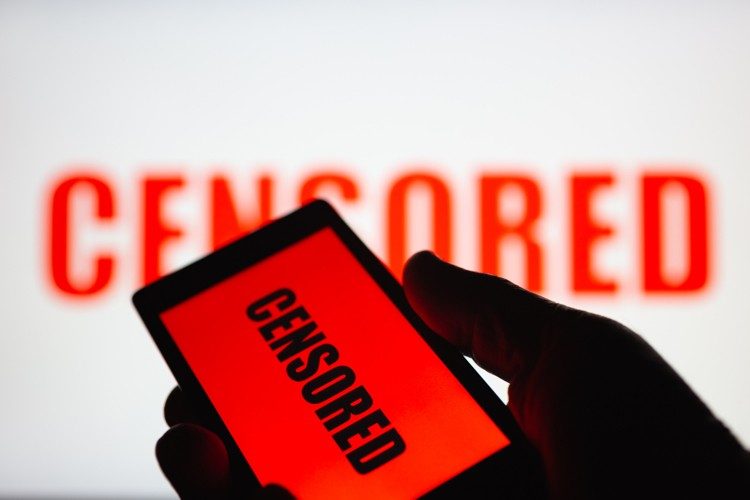
Twitter’s efforts to censor the New York Post’s Hunter Biden story appear to have achieved the exact opposite result, according to the Massachusetts Institute of Technology (MIT).
When the New York Post broke the Hunter Biden story last week, major social-media platforms, which also happen to be big Democrat donors, immediately went to work as the de facto public-relations arm of the Biden campaign and the Democratic Party.
As The New American noted at the time,
Then-vice president Joe Biden was essentially taking perhaps millions in bribes in exchange for providing access to himself, using his son Hunter as the bag man. When the FBI was given a laptop computer with e-mails detailing this corruption, it hid the evidence instead of seeking justice. And when a major newspaper finally broke the scandal, major Democrat donors — the Big Tech giants — suppressed the story so fewer Americans would see it. Aided by this big-donor interference, now-presidential-candidate Biden then claimed the story was “discredited,” giving a compliant mainstream media a justification for not covering it.
Twitter locked down the account of the New York Post, the fourth-largest newspaper in the country, and suspended the Trump campaign’s official account for daring to retweet the story. Twitter also prohibited users from sharing the article with a notice that stated, “We can’t complete this request because this link has been identified by Twitter or our partners as being potentially harmful.”
Facebook also attempted to stifle the story by limiting its third-party reach until fact-checkers could look more closely at the content, but it did not outright block people from linking directly to it as Twitter did.
The Big Tech giants defended their policies as part of their efforts to prevent the spread of misinformation, though users note they have been significantly less vigilant on that front in the spread of misinformation related to President Trump, including the now-debunked claims of Russian collusion.
But it appears Twitter’s overzealous efforts may have blown up in their faces. MIT contends the social-media platform’s decision to ban and then unban links to the New York Post article about Hunter Biden’s business dealings triggered the “Streisand Effect” — a massive spike in interest in the story. The term refers to 2003 efforts by singer Barbara Streisand to suppress a photo of her home in Malibu, California, over security concerns, the Daily Wire explains.
“According to Zignal Labs, a media intelligence firm, shares of the Post article ‘nearly doubled’ after Twitter started suppressing it,” MIT noted.
“Zignal found a surge of shares immediately after Twitter instituted the block, jumping from about 5.5 thousand shares every 15 minutes to about 10 thousand. This doesn’t necessarily mean the block caused the explosion in interest, but the surge corresponds with a series of widely shared tweets from Trump supporters and conservatives accusing the platform of political censorship,” MIT said on Monday.
Twitter’s decision to block the story did indeed provoke public outcry, prompting the social-media giant to reverse its position. Twitter CEO Jack Dorsey even issued an apology of sorts, tweeting, “Straight blocking of URLs was wrong, and we updated our policy and enforcement to fix.”
However, the New York Post’s Twitter account remains blocked. Twitter absurdly claims that, while the story can now be shared on the platform, the Post’s tweets from when the story broke last Thursday must be deleted because they were created at a time when the story was in violation of Twitter’s rules.
“We don’t change enforcement retroactively,” the company told the Post, according to Forbes.
Twitter’s and Facebook’s censorship of the Hunter Biden story prompted calls for a full-scale congressional investigation into the platforms’ actions from Republican lawmakers such as Senators Josh Hawley (R-Mo.) and Ted Cruz (R-Texas), who have threatened subpoenas of Twitter and Facebook officials, including Dorsey and Mark Zuckerberg.
“We have seen big tech, we’ve seen Twitter and Facebook actively interfering in this election in a way that has no precedent in the history of our country,” Cruz said on Thursday.
But Politico reports key Republicans on the Senate Judiciary Committee are now “wavering” on whether to move forward with the subpoenas. Still, Cruz told Politico he intends to hear testimony from both Dorsey and Zuckerberg, even without the full support of all Republican members of the Senate Judiciary Committee.
“One way or another, either voluntarily or pursuant to subpoena, they will testify and they will testify before the election,” Cruz told the outlet.
The Republican National Committee has also filed a claim with the Federal Election Commission against the platform, claiming the effort to stifle the Hunter Biden story “amounts to an illegal corporate in-kind political contribution to the Biden campaign.”
Meanwhile, journalists have sounded the alarm on Twitter’s overreach and its long-term implications on freedom of the press.
Glenn Greenwald of The Intercept tweeted, “Look carefully at what Twitter is saying to justify censoring the Biden story. If applied consistently, it’d mean that some of history’s most consequential journalism — the Pentagon Papers, WikiLeaks’ war logs, Snowden docs, Panama Papers, our Brazil Archive — would be banned.”
Even Greenwald’s colleague, Ryan Grim, by no means a Trump supporter, asserts Twitter’s actions create a dangerous, slippery slope.
Twitter has long been accused of having an anti-conservative bias. In 2018, the platform hired liberal academics to combat so-called hate speech. That announcement came after a number of conservatives had been shadow-banned on the platform, the Daily Wire reported at the time.


